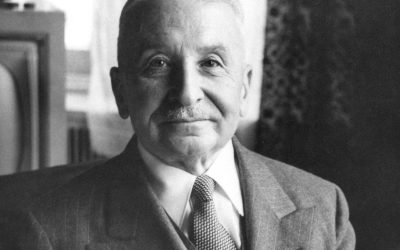Foreign investment is made in the expectation that it will not be expropriated. Nobody would invest anything if he knew in advance that somebody would expropriate his investments. At the time when these foreign investments were made in the nineteenth century, and at the beginning of the twentieth century, there was no question of expropriation. From the beginning, some countries showed a certain hostility toward foreign capital, but for the most part they realized very well that they derived an enormous advantage from these foreign investments.
In some cases, these foreign investments were not made directly to foreign capitalists, but indirectly by loans to the foreign government. Then it was the government that used the money for investments. Such was, for instance, the case in Russia. For purely political reasons, the French invested in Russia, in the two decades preceding the First World War, about twenty billion gold francs, lending them chiefly to the Russian government. All the great enterprises of the Russian government–for instance, the railroad that connects Russia from the Ural Mountains, through the ice and snow of Siberia, to the Pacific-were built mostly with foreign capital lent to the Russian government. You will realize that the French did not assume that one day there would be a communist Russian government that would simply declare it would not pay the debts incurred by its predecessor, the tsarist government.
Starting with the First World War, there began a period of worldwide open warfare against foreign investments. Since there is no remedy to prevent a government from expropriating invested capital, there is practically no legal protection for foreign investments in the world today. The capitalists did not foresee this. If the capitalists of the capital exporting countries had realized it, all foreign investments would have come to an end forty or fifty years ago. But the capitalists did not believe that any country would be so unethical as to renege on a debt, to expropriate and confiscate foreign capital. With these acts, a new chapter began in the economic history of the world.
With the end of the great period in the nineteenth century when foreign capital helped to develop, in all parts of the world, modern methods of transportation, manufacturing, mining, and agriculture, there came a new era in which the governments and the political parties considered the foreign investor as an exploiter who should be expelled from the country.
In this anti-capitalist attitude the Russians were not the only sinners. Remember, for example, the expropriation of the American oil fields in Mexico, and all the things that have happened in this country (Argentina) which I have no need to discuss.
The situation in the world today, created by the system of expropriation of foreign capital, consists either of direct expropriation or of indirect expropriation through foreign exchange control or tax discrimination. This is mainly a problem of developing nations.
Take, for instance, the biggest of these nations: India. Under the British system, British capital-predominately British capital, but also capital of other European countries–was invested in India. And the British exported to India something else which also has to be mentioned in this connection; they exported into India modern methods of fighting contagious diseases. The result was a tremendous increase in the Indian population and a corresponding increase in the country’s troubles. Facing such a worsening situation, India turned to expropriation as a means of dealing with its problems. But it was not always direct expropriation; the government harassed foreign capitalists, hampering them in their investments in such a way that these foreign investors were forced to sell out.
India could, of course, accumulate capital by another method: the domestic accumulation of capital. However, India is as hostile to the domestic accumulation of capital as it is to foreign capitalists. The Indian government says it wants to industrialize India, but what it really has in mind is to have socialist enterprises.
A few years ago the famous statesman Jawaharlal Nehru published a collection of his speeches. The book was published with the intention of making foreign investment in India more attractive. The Indian government is not opposed to foreign investment before it is invested. The hostility begins only when it is already invested. In this book–I am quoting literally from the book–Mr. Nehru said: “Of course, we want to socialize. But we are not opposed to private enterprise. We want to encourage in every way private enterprise. We want to promise the entrepreneurs who invest in our country, that we will not expropriate them nor socialize them for ten years, perhaps even for a longer time.” And he thought this was an invitation to come to India!
This article is serialized from Economic Policy: Thoughts for Today and Tomorrow, a book based on six lectures delivered in Buenos Aires in 1959 on Capitalism, Socialism, Interventionism, Inflation, Foreign Investment, and Politics and Ideas by the great 20th century economist who was too good to receive a Noble Prize: Ludwig von Mises (1881-1973). Copyright 1995 by Bettina Bien Greaves. All rights reserved.




